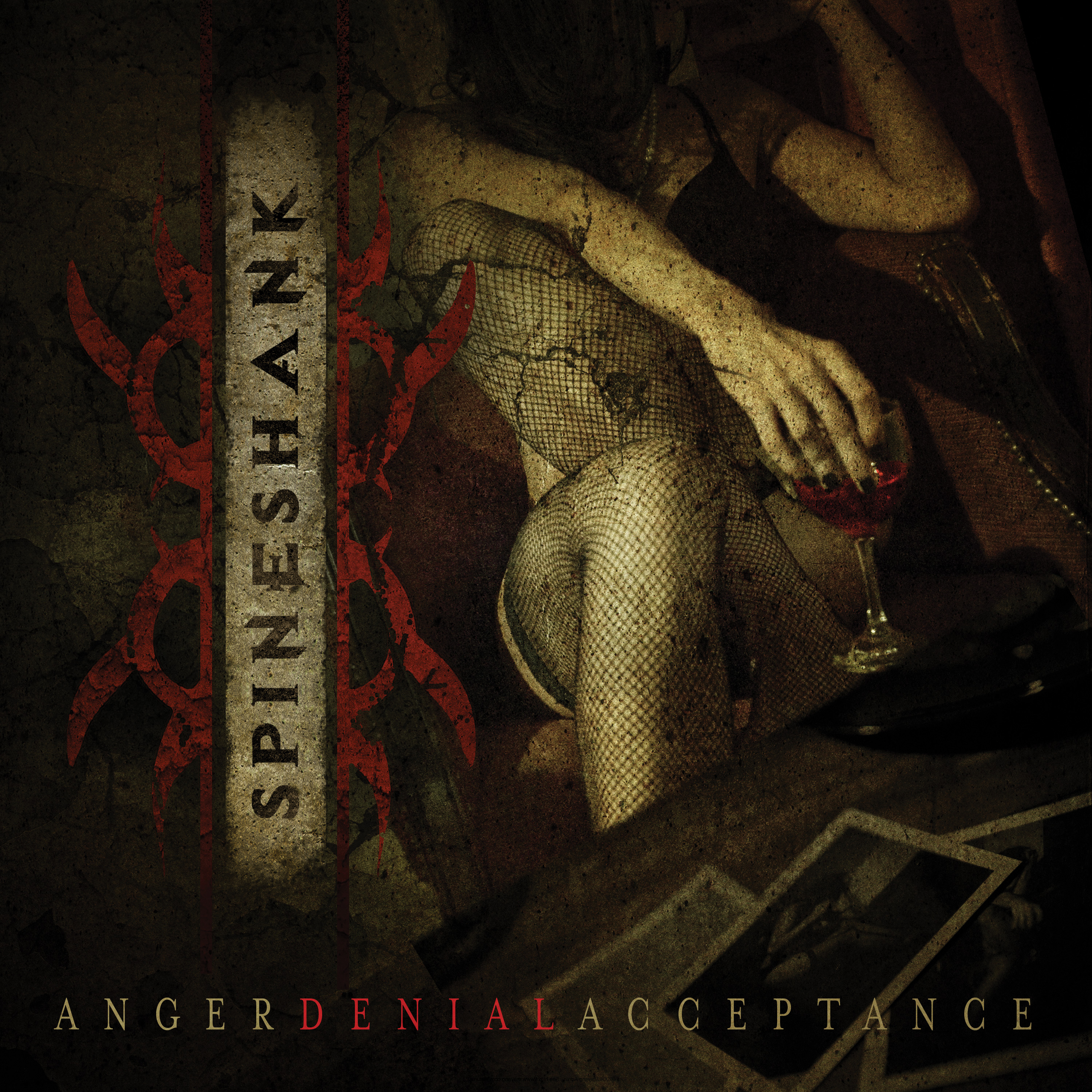
Album Review: Spineshank - "Anger Denial Acceptance"
Six long years. That's how long Spineshank has been away. Nine long years. A near decade has passed since the band's last studio album and subsequent Grammy nomination. On the comeback trail, Spineshank has released "Anger Denial Acceptance," their new record that attempts to encapsulate all the emotions that one experiences after life-altering events.
We've come a long way since 2003's hit single "Smothered." This new album covers the same familiar ground of noisy quasi-industrial, but has dropped the underlying feel-good esthetic of rhythmic rock and roll. This new effort is jagged and angsty, trying to lend the perception of emotional torment and forlorn detachment.
Always a band without a home field advantage, Spineshank never fit neatly into one of the clean-cut genre subdivisions that came of age right around the time the band was at its apex. In the past, this was a novel development, to see artists who merely by being defied the increased presence of the hyper-dissected digital age. As the years have gone by however, the fact that Spineshank has slid from "mostly industrial" to the nebulous cloud of "alternative metal" is an indication that they may have made the unfortunate slip from "interesting" to "unexceptional."
Strangely enough, "Anger Denial Acceptance" has a shot to play well amongst the modern conception of popular heavy metal bands. The mix of harsh sounds, road-grated cadences and melodic emotional expressions should place Spineshank on the same pedestal with the bands who have risen to prominence recently. They're not quite following their old formula, but as a product of their honest evolution, Spineshank has stayed in step with the times.
Depending on the listener's taste, everything we've talked about already is not necessarily a good thing. "Anger Denial Acceptance" lacks the killer instinct of previous Spineshank efforts, and does not represent industrial old or new. The album is high on melody, but can't help falling into the chasm of melodrama. Jonny Santos' vocals are powerful and effective, but not affecting. His impassioned pleas and utterances are too common and too similar; they saturate the album and do not distinguish from each other. This all culminates with "Exit Wound," which is the poster child for Spineshank's new vocal direction.
The album begins with promise, as "After the End" is punishing, punctuated by the sharp, well-defined, snapping snare of Tommy Decker. His drums alone keep the song dancing on the high wire of aural balance, keeping the track loud and brash without allowing it to plummet into a dark swamp of noise. It's unfortunate that the momentum of this powerful opener is halted by "Nothing Left For Me," the first cut that lets listeners hear Spineshank's new melodic bent.
Songs like "I Want You to Know" and the title track aren't exactly sugary, but don't have the teeth necessary for rending and tearing. The underlying music is rangy and crushing, the rhythm section of the band holding up their end of the bargain with full-tilt, de-tuned waves of metal, but the construction of the songs doesn't allow this to be the headline.
The notable exception to this rule is "Everything Everyone Everywhere Ends," which is a pretty decent ass-kicker and represents the closest approximation to Spineshank's previous sound. Had there been more cuts like this to beef out the album and allow for juxtaposition of the melodic and the destructive, "Anger Denial Acceptance" could have been a better showcase.
The music, and the talent making it, is not the issue here. Spineshank's musicianship is as solid as it's always been, a by-product of a band who has been together an awful long time and understands each others' talent. The downbeats are heavy and dense, but the overlay of melodic elements is too thick and distracting. After six years away, Spineshank has produced arguably their most mainstream-ready album to date. Whether or not that's a good thing remains to be seen.

